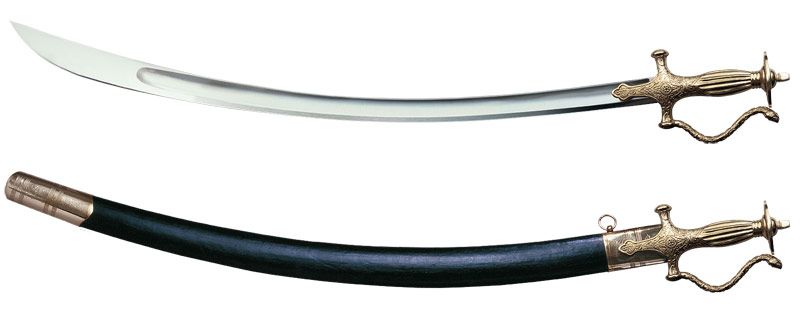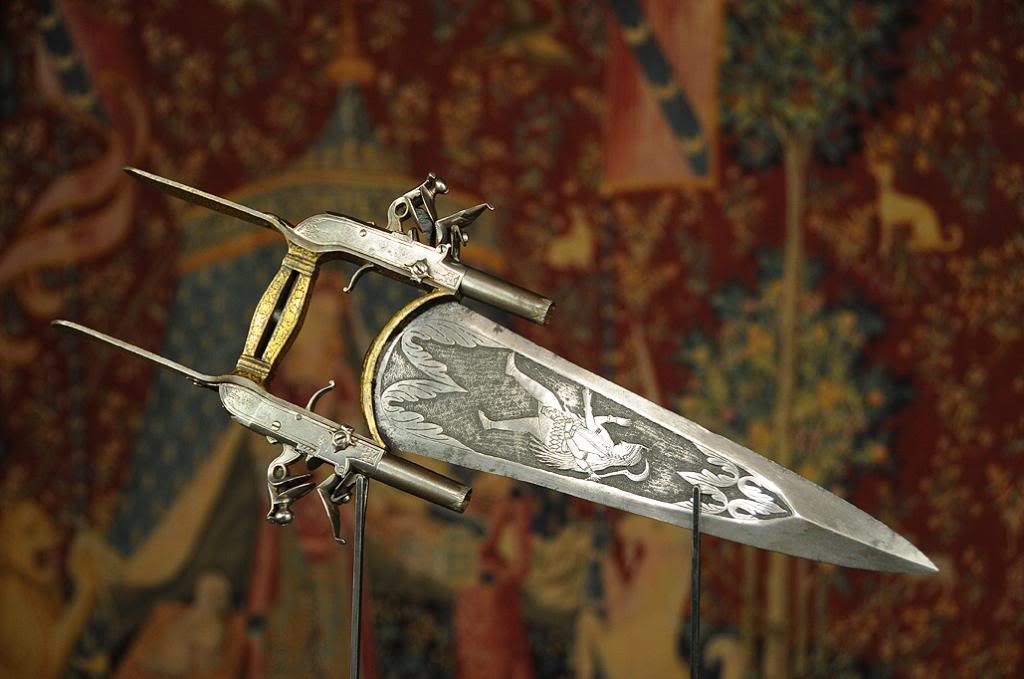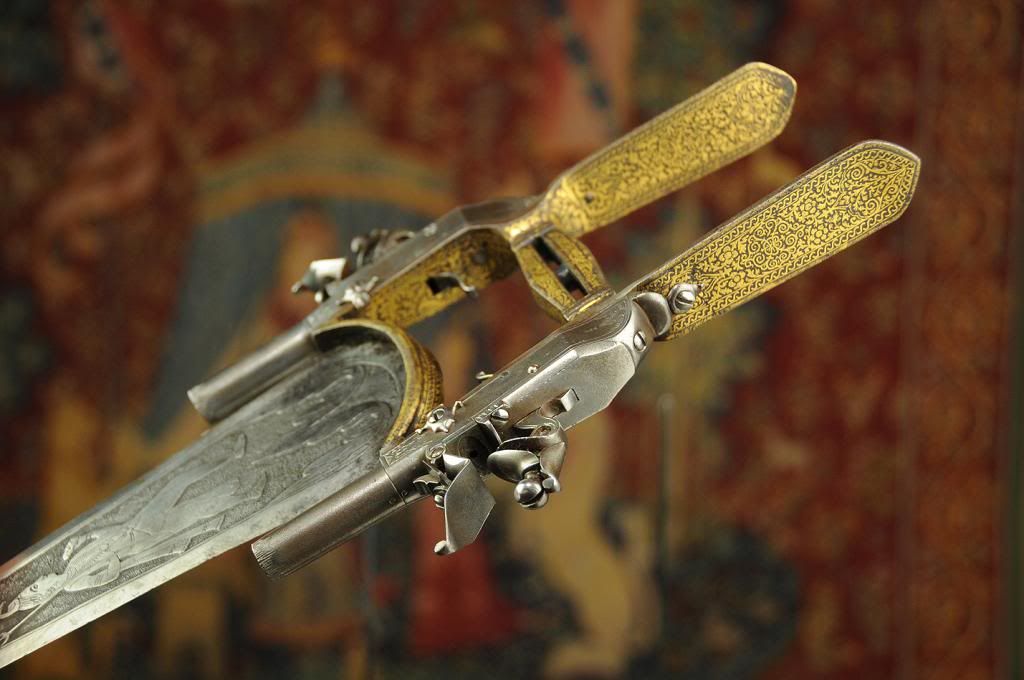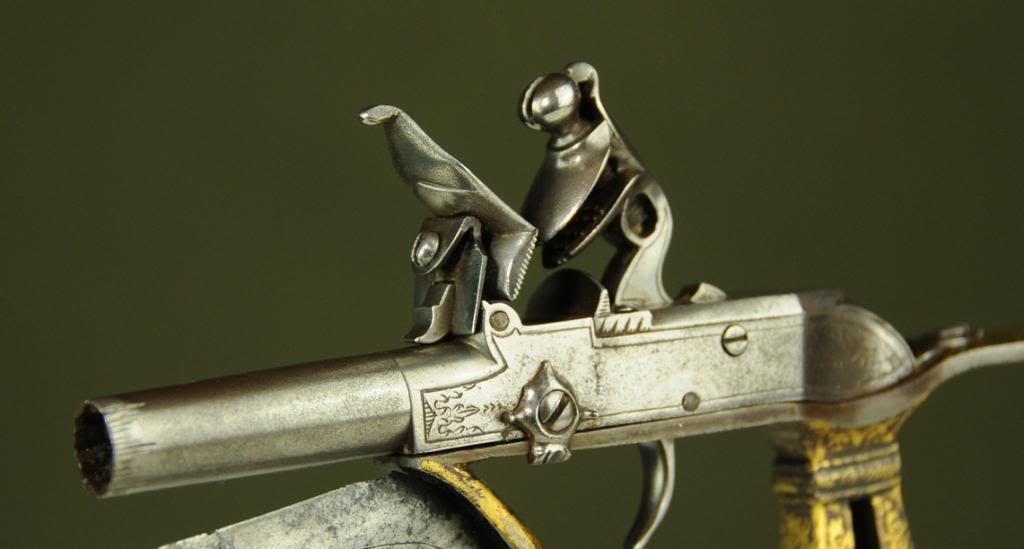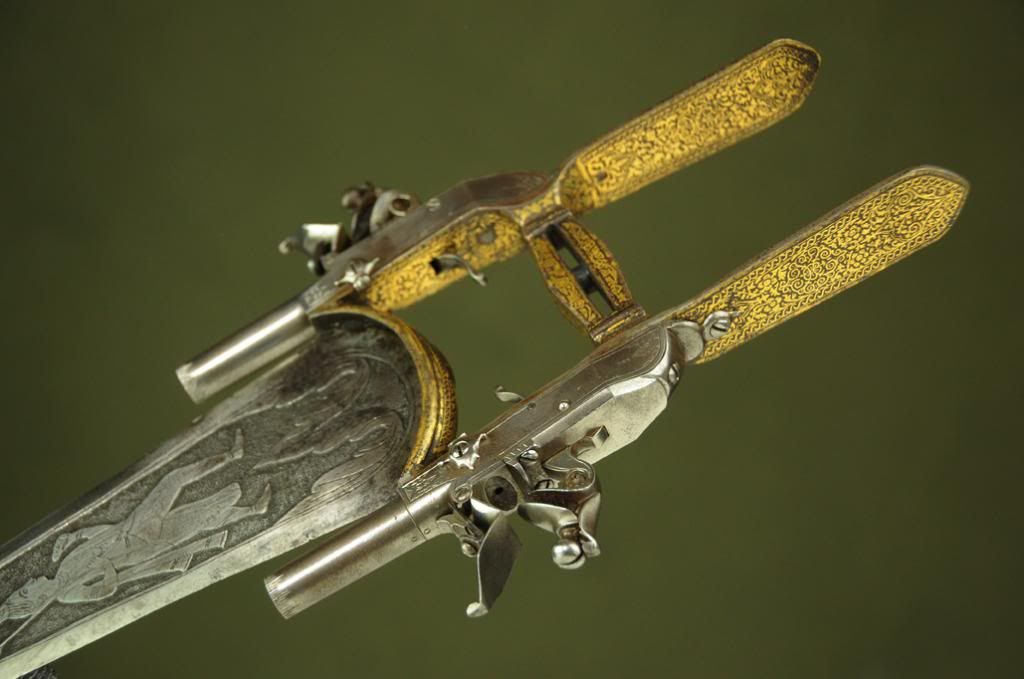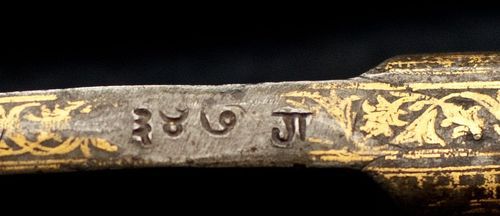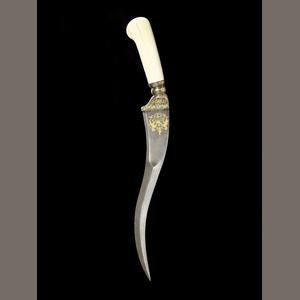Sikh Arms & Armour
- abhiram
- On the way to nirvana

- Posts: 99
- Joined: Mon Jun 25, 2012 11:51 pm
- pistolero
- One of Us (Nirvana)

- Posts: 421
- Joined: Wed May 06, 2009 4:43 pm
- Location: Dubai
Re: Sikh Arms & Armour
Hi,
Thanks! Hopefully you guys will like the stuff which follows
Look forward to your contributions to this post.
Regards,
Pistolero
Thanks! Hopefully you guys will like the stuff which follows
Look forward to your contributions to this post.
Regards,
Pistolero
"Whatever is begun in anger ends in shame."
- pistolero
- One of Us (Nirvana)

- Posts: 421
- Joined: Wed May 06, 2009 4:43 pm
- Location: Dubai
- pistolero
- One of Us (Nirvana)

- Posts: 421
- Joined: Wed May 06, 2009 4:43 pm
- Location: Dubai
Re: Sikh Arms & Armour
Moving on to the Katar:
The Katar is probably one of the oldest Indian Knives in recorded history. The Katar 'push dagger' is again unique to India, and is designed as a weapon for combat. Knives have multiple purposes, but the Katar has only one purpose, COMBAT.
The Katar in shastravidya is an extension of the hand, and when one holds the katar, the hand becomes Vajra Muthi, (not to be confused with Vajra Mushti) literally meaning Thundering Fist (Now I know how the Chinese got the unique names for all Kung Fu forms )
)
The Katar It is notable for its horizontal hand grip, which results in the blade of the katar sitting above the user's knuckles. Making the hand perfectly positioned to 'Punch' The basic katar has a short, wide, triangular blade. Its uniqueness lies in the handle which is made up of two parallel bars connected by two or more cross-pieces, one of which is at the Mid and the other is closer to the blade. The handle is at right angle to the blade. Some handles have longer arms extending across the length of the user's forearm. The entire Hilt is constructed from a single piece of Faulad, and the blades of the Katar are generally high quality Faulad with a Bulbous tip, which facilitates in breaking the Chain Mail open, and is a close quarters, armour piercing weapon.
As this thread on Sikhs Arms and Armour it is notable, that the Nihang warrior weilded the Katar deftly either as close quarter weapon or in a Katar Pesh Kabz combo in the left hand and the talwar in the right hand.
However the Katar as such IMHO is not a True North Indian weapon, but has its origin in the south of India, and was brought to the battlefield first by the Dravidian Warrior rather than the Aryan warrior.
If we look at the early Katars, we will notice 2 things, one is that most of the blades are NOT faulad, but normal steel, and that most of the Katars are Hooded, that is having a gauntlet which protected the back of the hand against attack. North Indian Katars characteristically do not have such gauntlets, but are as described in the beginning.
Katar's are personal weapons, and as the Mughals came to India, they too adopted this weapon, Paintings from 1300 onwards, show several Rulers & warriors, be it Sikh, Rajput, Mughal all having Katars as part of their personal weapons. The Katar in the Darbar evolved to more of a Jewel, and though its central purpose remained as an armour piercing, close quarters weapon, its basic design, lent itself to Ornamentation.
Over a period of time, with the introduction of Flint Lock guns, Katar's were designed and made to include the Flint Locks, I believe just a short while ago we have had a discussion on such Katars in the forum.
The following is a Photo essay on the Katar, Enjoy
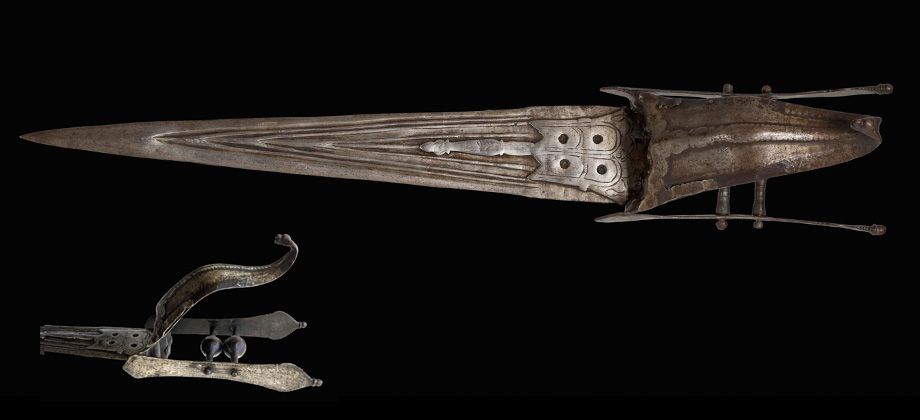
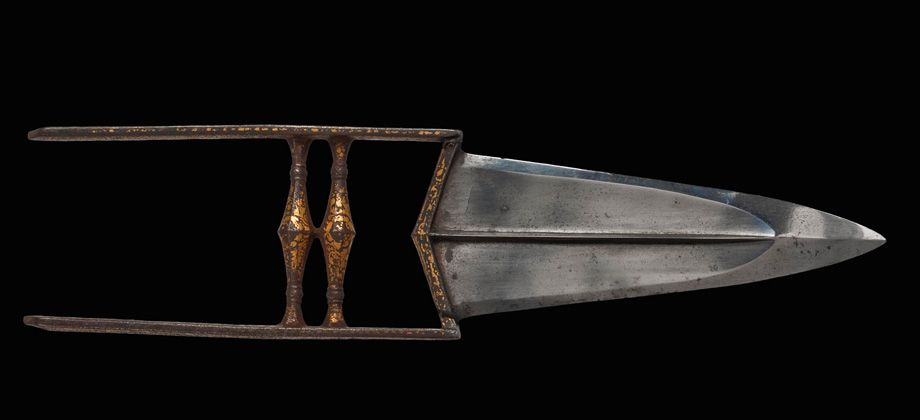
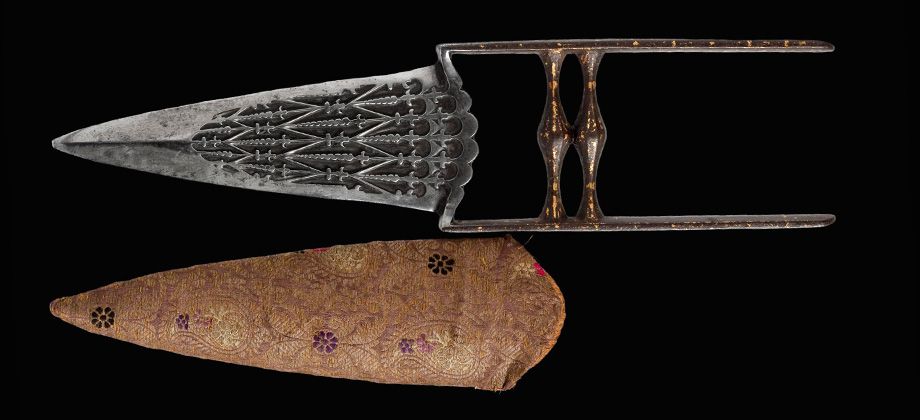
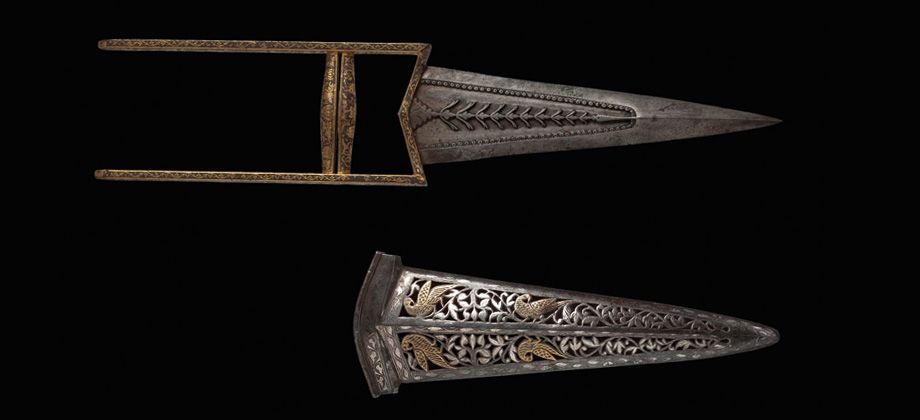
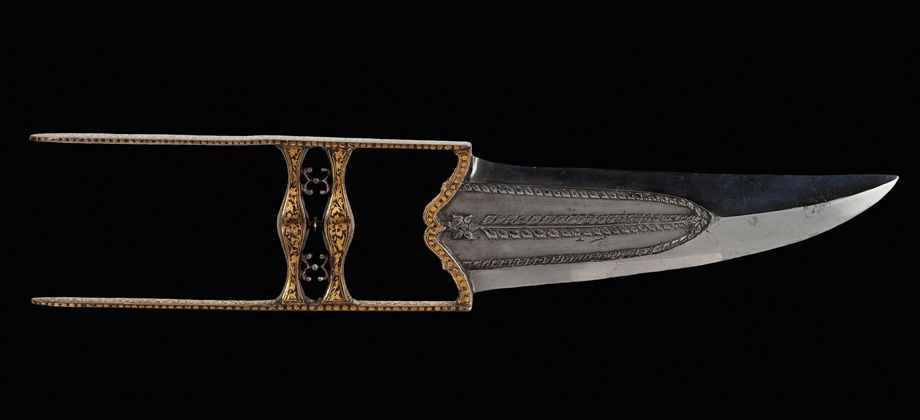
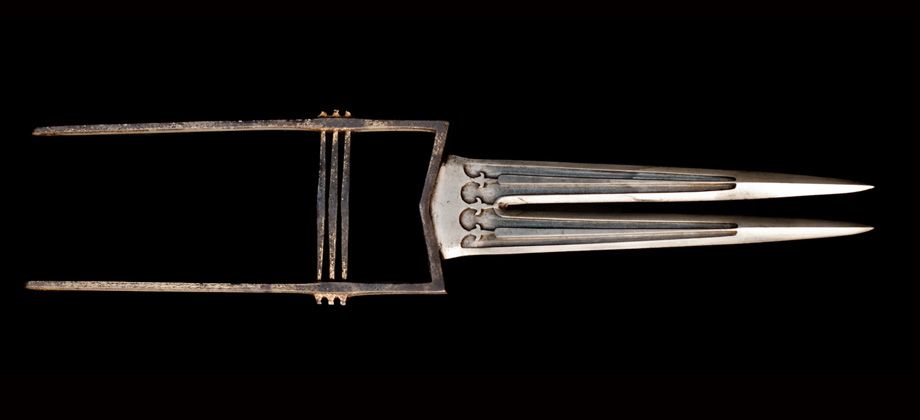
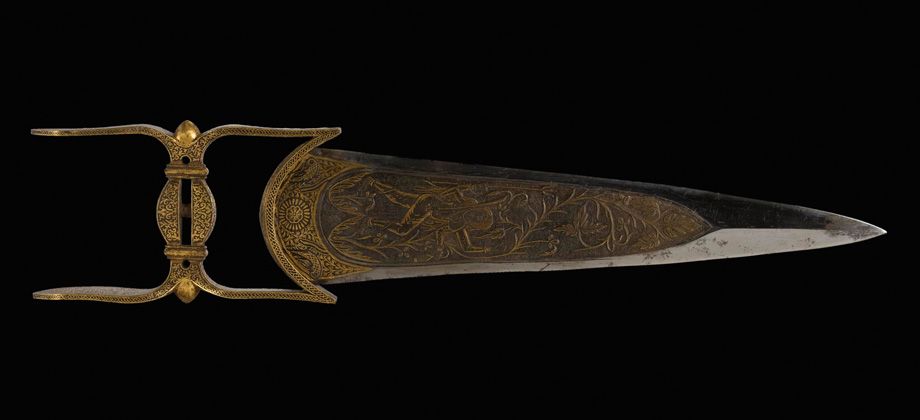
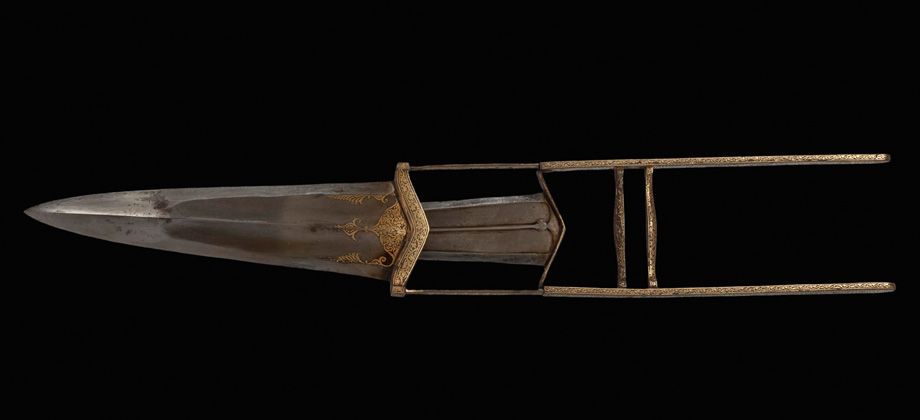
---More to follow ----
----
The Katar is probably one of the oldest Indian Knives in recorded history. The Katar 'push dagger' is again unique to India, and is designed as a weapon for combat. Knives have multiple purposes, but the Katar has only one purpose, COMBAT.
The Katar in shastravidya is an extension of the hand, and when one holds the katar, the hand becomes Vajra Muthi, (not to be confused with Vajra Mushti) literally meaning Thundering Fist (Now I know how the Chinese got the unique names for all Kung Fu forms
The Katar It is notable for its horizontal hand grip, which results in the blade of the katar sitting above the user's knuckles. Making the hand perfectly positioned to 'Punch' The basic katar has a short, wide, triangular blade. Its uniqueness lies in the handle which is made up of two parallel bars connected by two or more cross-pieces, one of which is at the Mid and the other is closer to the blade. The handle is at right angle to the blade. Some handles have longer arms extending across the length of the user's forearm. The entire Hilt is constructed from a single piece of Faulad, and the blades of the Katar are generally high quality Faulad with a Bulbous tip, which facilitates in breaking the Chain Mail open, and is a close quarters, armour piercing weapon.
As this thread on Sikhs Arms and Armour it is notable, that the Nihang warrior weilded the Katar deftly either as close quarter weapon or in a Katar Pesh Kabz combo in the left hand and the talwar in the right hand.
However the Katar as such IMHO is not a True North Indian weapon, but has its origin in the south of India, and was brought to the battlefield first by the Dravidian Warrior rather than the Aryan warrior.
If we look at the early Katars, we will notice 2 things, one is that most of the blades are NOT faulad, but normal steel, and that most of the Katars are Hooded, that is having a gauntlet which protected the back of the hand against attack. North Indian Katars characteristically do not have such gauntlets, but are as described in the beginning.
Katar's are personal weapons, and as the Mughals came to India, they too adopted this weapon, Paintings from 1300 onwards, show several Rulers & warriors, be it Sikh, Rajput, Mughal all having Katars as part of their personal weapons. The Katar in the Darbar evolved to more of a Jewel, and though its central purpose remained as an armour piercing, close quarters weapon, its basic design, lent itself to Ornamentation.
Over a period of time, with the introduction of Flint Lock guns, Katar's were designed and made to include the Flint Locks, I believe just a short while ago we have had a discussion on such Katars in the forum.
The following is a Photo essay on the Katar, Enjoy








---More to follow
"Whatever is begun in anger ends in shame."
- pistolero
- One of Us (Nirvana)

- Posts: 421
- Joined: Wed May 06, 2009 4:43 pm
- Location: Dubai
- Moin.
- Poster of the Month - Sep '11 & Apr '13

- Posts: 1718
- Joined: Fri May 07, 2010 11:10 am
- Location: Gujrat
Re: Sikh Arms & Armour
There's a whole lot to be discussed on the Talwar, it's origins, various forms and avatars. I was more curious to learn hopw to identify the origin looking at the Talwar. Katanaji is an expert on the subject and would request him to add more to this excellent post.
Regards
Moin.
Regards
Moin.
In the depth of winter, I finally learned that within me there lay an invincible summer. Camus
- xl_target
- Old Timer

- Posts: 3488
- Joined: Wed Jul 29, 2009 7:47 am
- Location: USA
Re: Sikh Arms & Armour
Pistolero,
What great photos (Katar).
Thanks for starting and contributing to this thread. It has been very enjoyable.
What great photos (Katar).
Thanks for starting and contributing to this thread. It has been very enjoyable.
“Never give in, never give in, never; never; never; never – in nothing, great or small, large or petty – never give in except to convictions of honor and good sense” — Winston Churchill, Oct 29, 1941
- pistolero
- One of Us (Nirvana)

- Posts: 421
- Joined: Wed May 06, 2009 4:43 pm
- Location: Dubai
Re: Sikh Arms & Armour
Dear xl_target,
Thank you for your kind words, Im glad that you like it
There is more to come on Daggers in the next section.
Look forward to contributions from you all.
Regards,
Aditya
Thank you for your kind words, Im glad that you like it
There is more to come on Daggers in the next section.
Look forward to contributions from you all.
Regards,
Aditya
"Whatever is begun in anger ends in shame."
- pistolero
- One of Us (Nirvana)

- Posts: 421
- Joined: Wed May 06, 2009 4:43 pm
- Location: Dubai
Re: Sikh Arms & Armour
Hi Moin,
I moved on from the Talwar as I was not getting any responses from the forum!
Talwars is a passion and I would be very happy to keep discussing this section.
Look forward to contributions from Katana ji.
I will try and post some stuff on Origin of Talwar soon, but as I said in my post, an Indian Disc Hilt on an Indo Persian blade in a broad sense is a Talwar HOWEVER the curve of the sword is very important to look at, as the Talwar is a slashing and thrusting weapon!
I moved on from the Talwar as I was not getting any responses from the forum!
Talwars is a passion and I would be very happy to keep discussing this section.
Look forward to contributions from Katana ji.
I will try and post some stuff on Origin of Talwar soon, but as I said in my post, an Indian Disc Hilt on an Indo Persian blade in a broad sense is a Talwar HOWEVER the curve of the sword is very important to look at, as the Talwar is a slashing and thrusting weapon!
"Whatever is begun in anger ends in shame."
- pistolero
- One of Us (Nirvana)

- Posts: 421
- Joined: Wed May 06, 2009 4:43 pm
- Location: Dubai
Re: Sikh Arms & Armour
In this section, im trying to cover most of the daggers which were used by the Sikh Warrior, while the Pezh Kabz, Choora & Khanjar formed a major part of the personal weaponry, the Pezh Kabz was used in several combinations by the Nihang's, and the blade was kept razor sharp for close quarters combat.
In my photo essay on this section im trying to capture, some great examples of the Knives of this time, many of the knives displayed are Mughal in origin, and are mostly Darbari in nature, with some of the best faulad blades, however the actual combat weapons of the time, were not far removed from these, and instead of the ornamentation, they were simpler weapons made of the same Faulad.
Enjoy


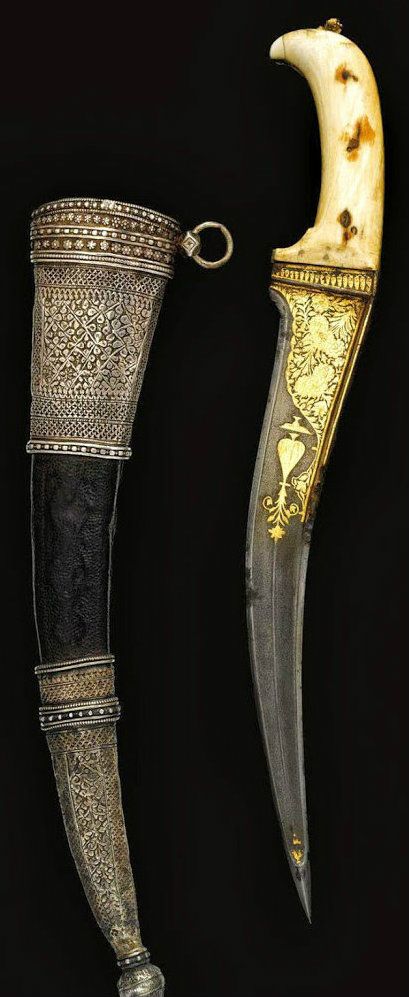

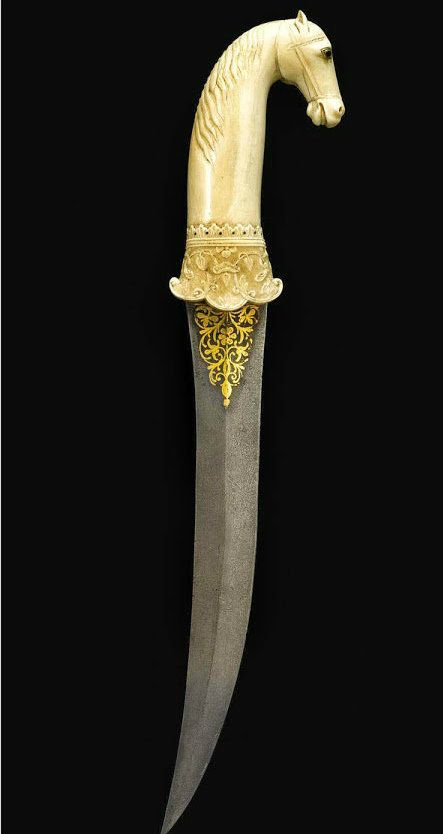
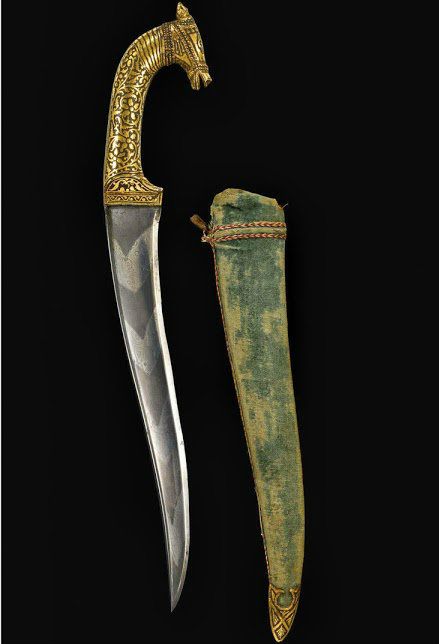
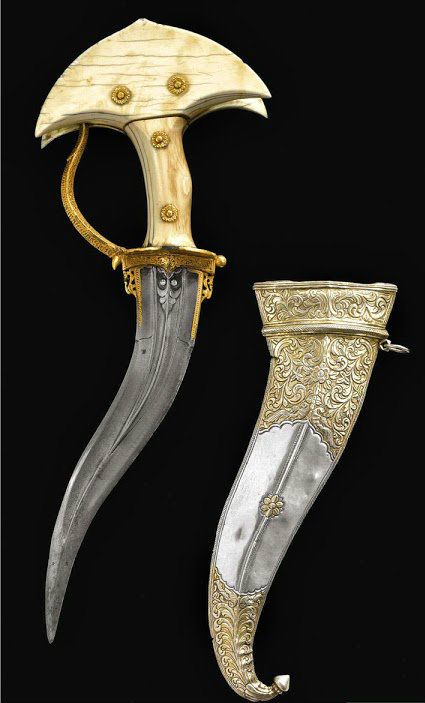
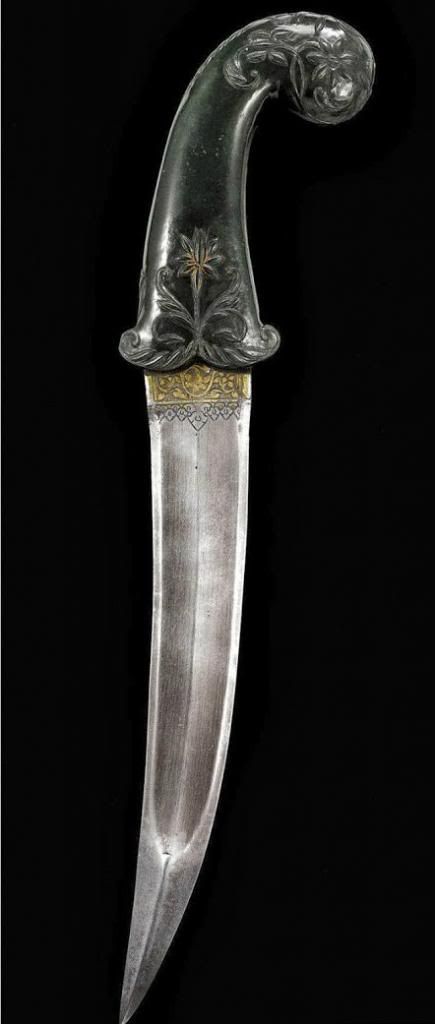
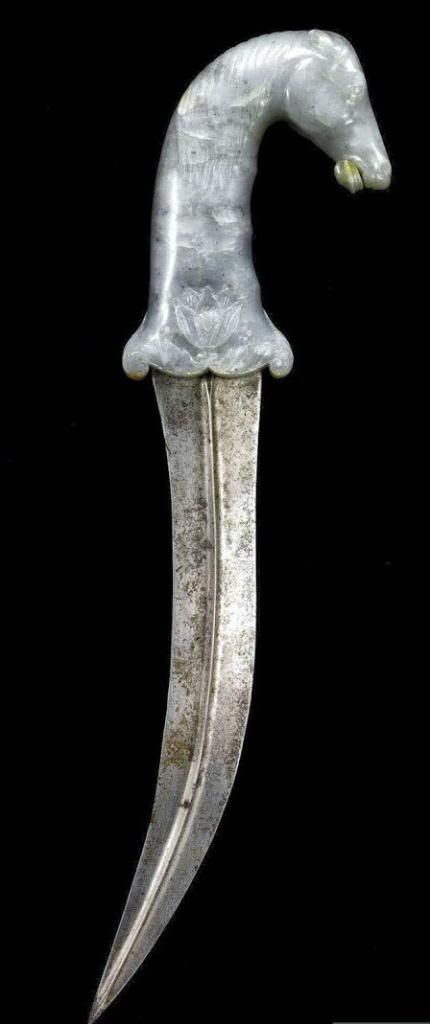
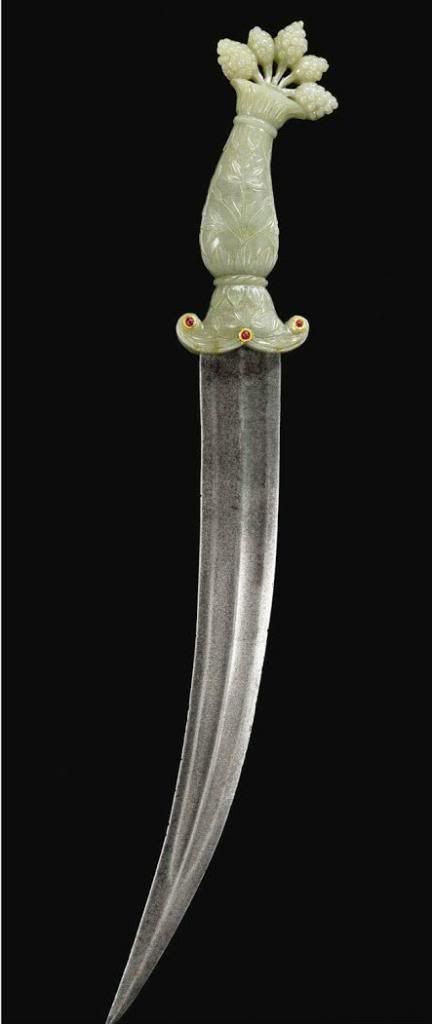

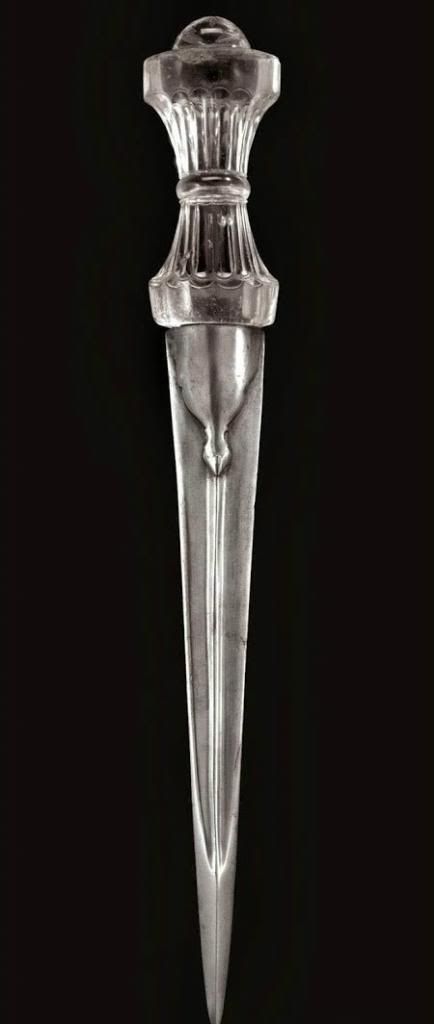
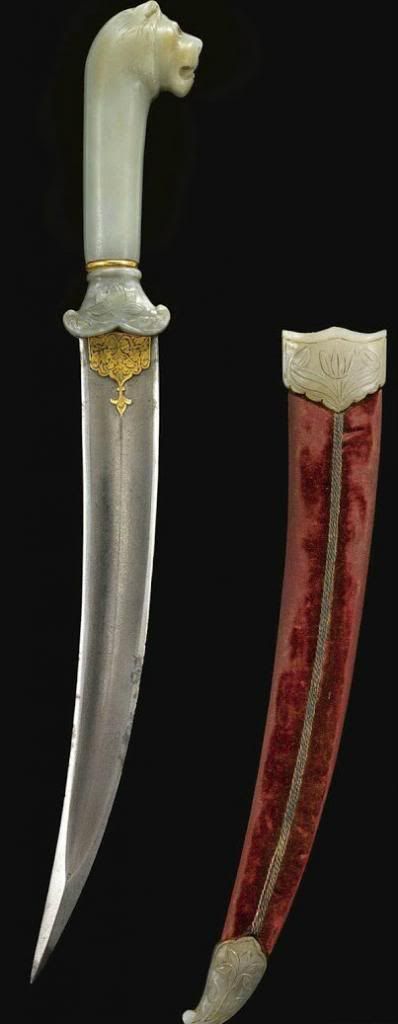
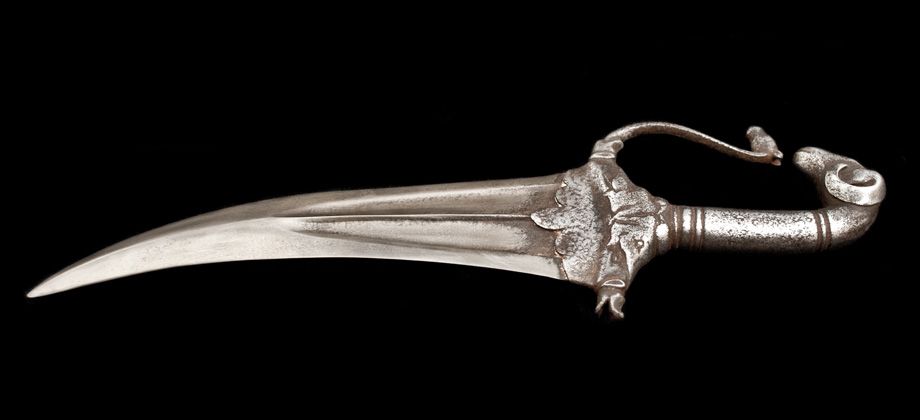
I look forward to hearing from you all.....
Regards,
Pistolero
In my photo essay on this section im trying to capture, some great examples of the Knives of this time, many of the knives displayed are Mughal in origin, and are mostly Darbari in nature, with some of the best faulad blades, however the actual combat weapons of the time, were not far removed from these, and instead of the ornamentation, they were simpler weapons made of the same Faulad.
Enjoy














I look forward to hearing from you all.....
Regards,
Pistolero
"Whatever is begun in anger ends in shame."
- pistolero
- One of Us (Nirvana)

- Posts: 421
- Joined: Wed May 06, 2009 4:43 pm
- Location: Dubai
Re: Sikh Arms & Armour
Dear Ngrewal,ngrewal wrote:pistolero
I didnt read this thread properly amazing information and pictures..I do have a book on swords and knives and will post pictures of various Indian weapons Marathas, Sikhs etc..I guess this industry also died away..unless some of them are being made in Rajasthan etc
Best
There are still some Sikligars around in Rajasthan who pursue the old arts, I believe there are also some armorers in Punjab and Nanded in Maharashtra who still pursue their age old profession, however I have very limited information on them.
Hope this helps.
Regards,
Pistolero
"Whatever is begun in anger ends in shame."
- pistolero
- One of Us (Nirvana)

- Posts: 421
- Joined: Wed May 06, 2009 4:43 pm
- Location: Dubai
Re: Sikh Arms & Armour
Some more excellent examples of Indo Persian Daggers:
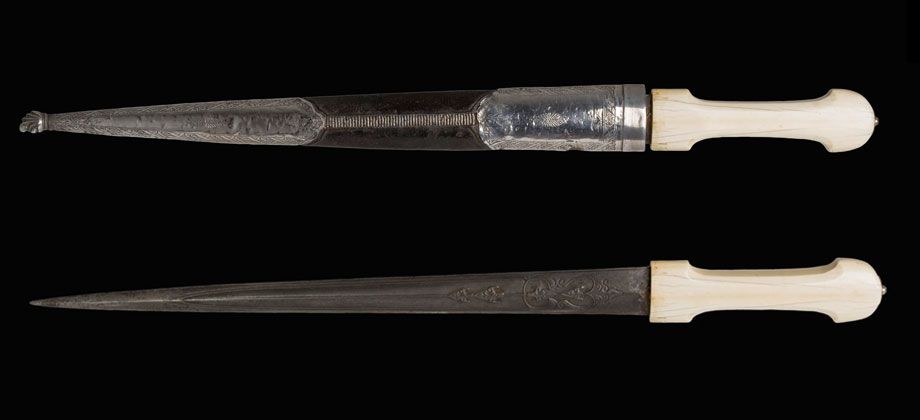
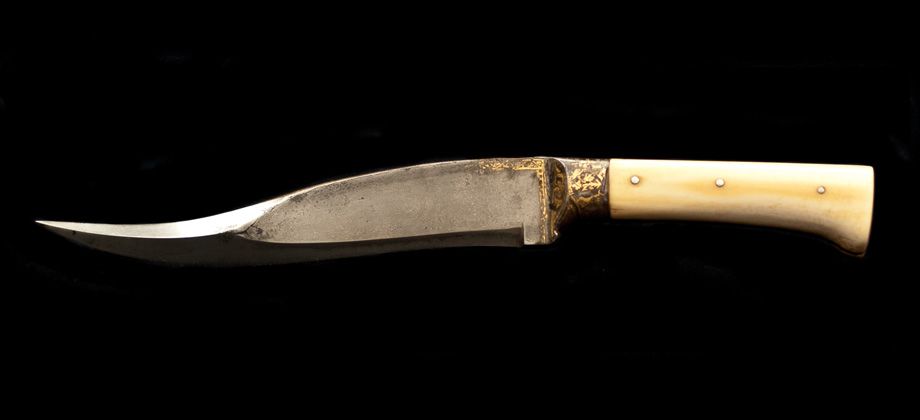


"Whatever is begun in anger ends in shame."
- pistolero
- One of Us (Nirvana)

- Posts: 421
- Joined: Wed May 06, 2009 4:43 pm
- Location: Dubai
- pistolero
- One of Us (Nirvana)

- Posts: 421
- Joined: Wed May 06, 2009 4:43 pm
- Location: Dubai
Re: Sikh Arms & Armour
Some photos of Sikh Infantry from the the late 1800/Early 1900 Period
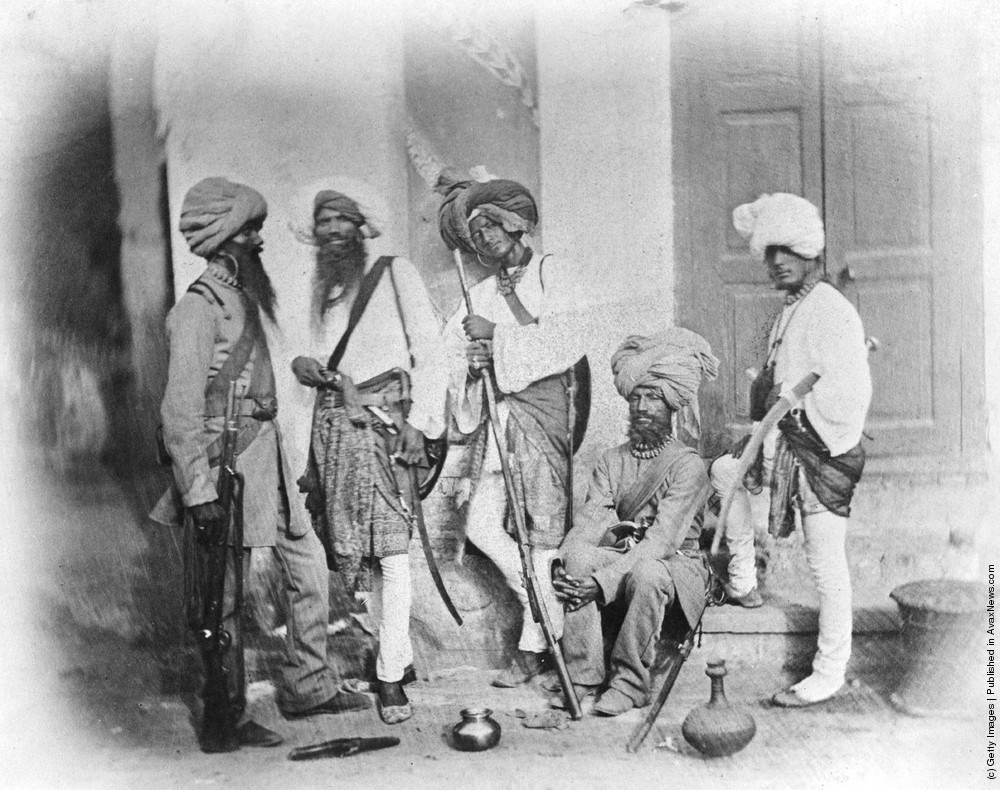
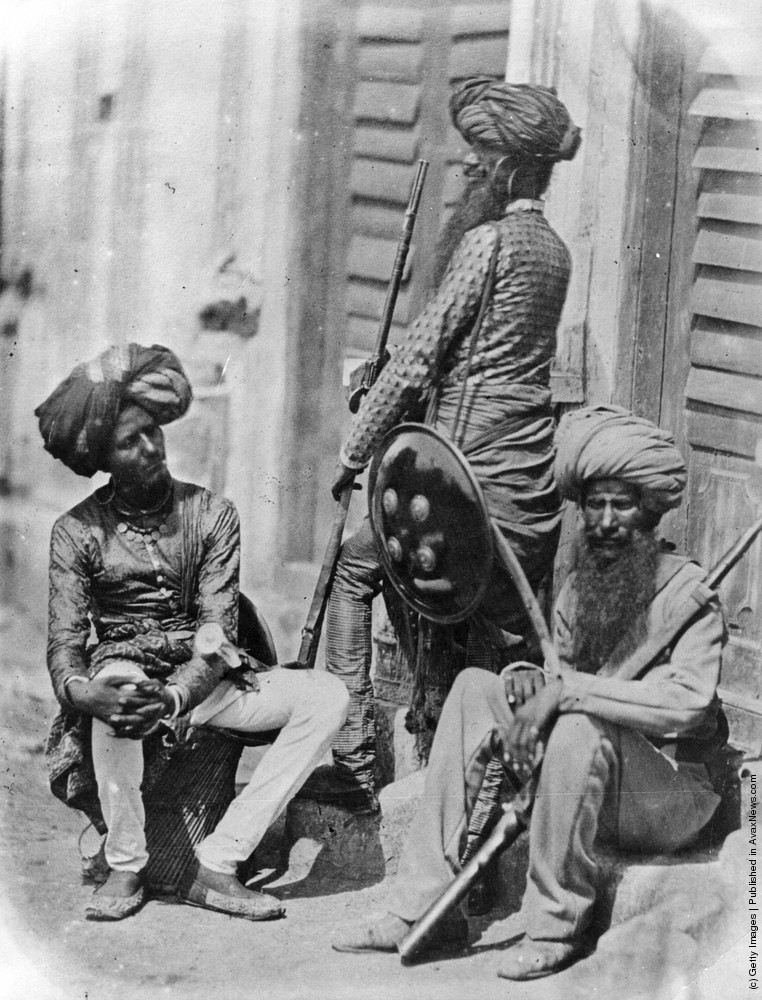
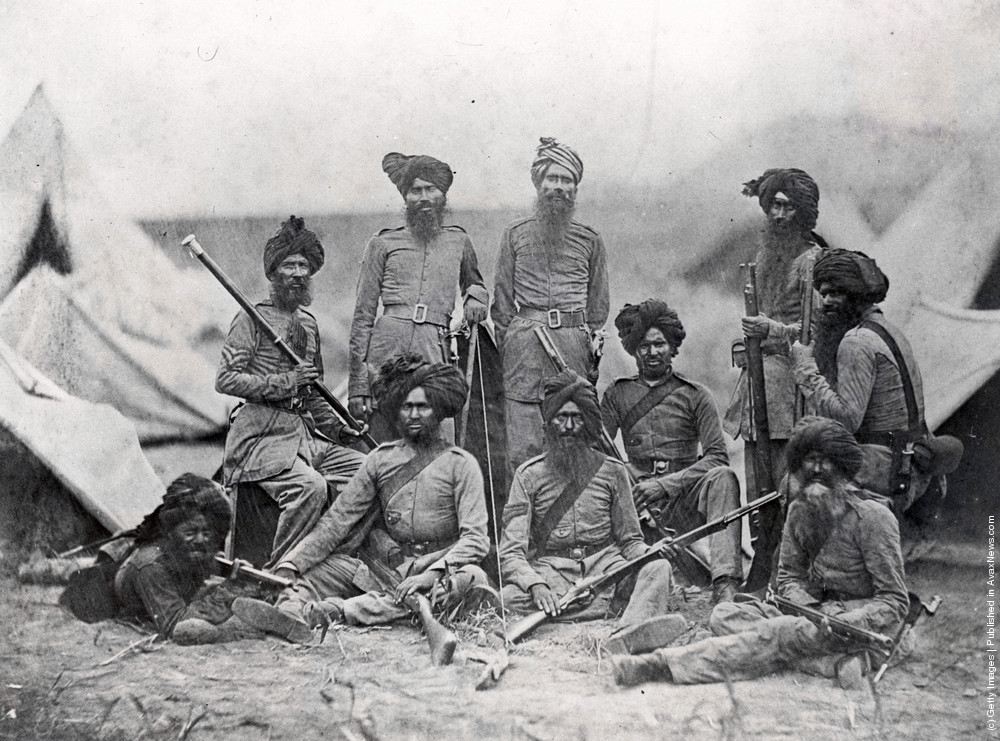
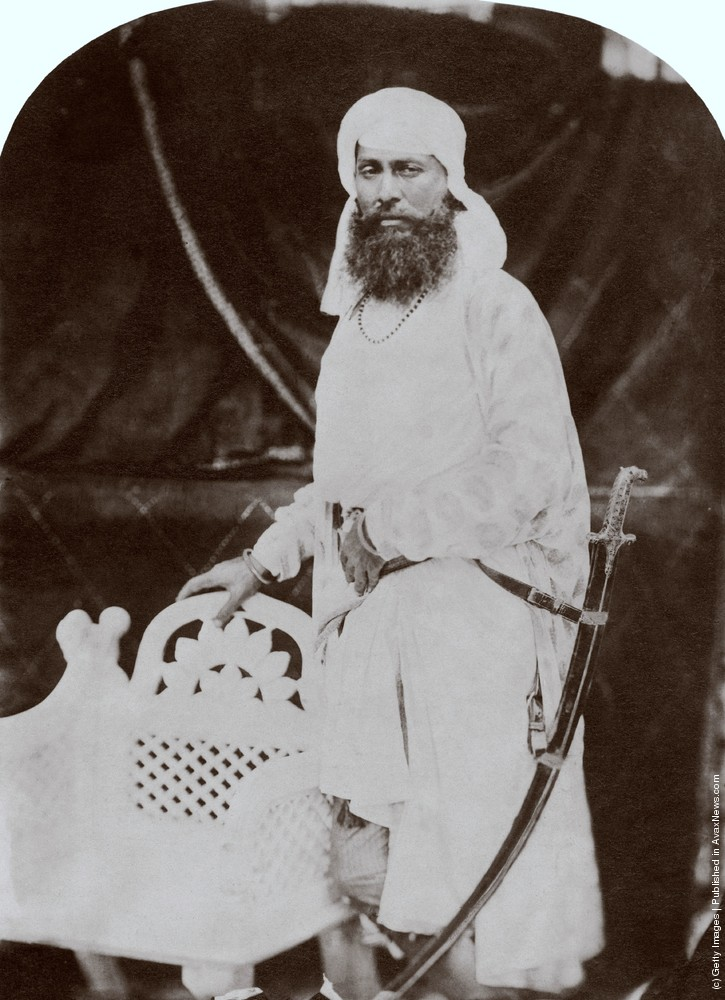
Notice the Pistol Grip Shamshir!




Notice the Pistol Grip Shamshir!
"Whatever is begun in anger ends in shame."
- pistolero
- One of Us (Nirvana)

- Posts: 421
- Joined: Wed May 06, 2009 4:43 pm
- Location: Dubai
Re: Sikh Arms & Armour
Im sharing with you all an excellent photo, which has recently come to my attention 
I have never seen such a Khanda, if any other members have ever seen any similar Khanda (The one on the right) please advise. Also advise its application.
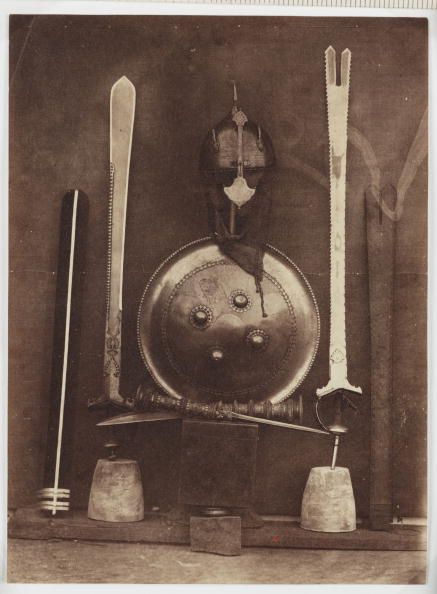
I have never seen such a Khanda, if any other members have ever seen any similar Khanda (The one on the right) please advise. Also advise its application.

"Whatever is begun in anger ends in shame."




